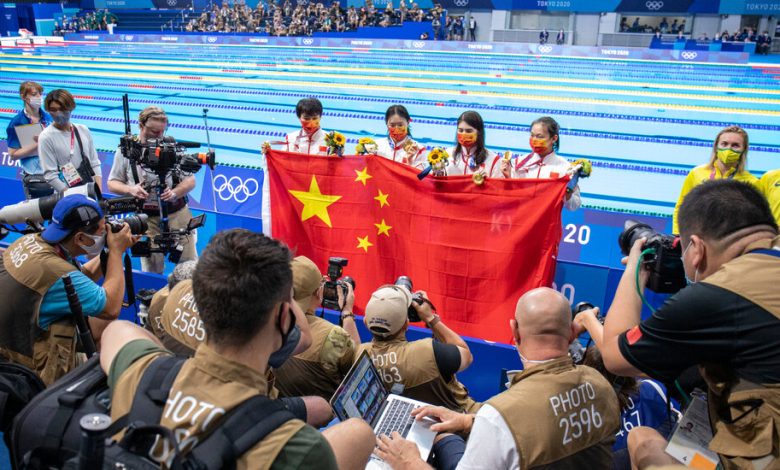An Uproar Over a Chinese Doping Case, Except in China

In past years, when athletes from China have been accused of doping, the government has mobilized its propaganda apparatus of state-owned newspapers, television commentators and social media accounts to defend the athletes and deflect criticism of China’s sports system.
This time, faced with anger from rival Olympians and charges of a coverup over the revelation that 23 elite Chinese swimmers had tested positive for a banned substance before competing in the 2021 Olympic Games, China is taking a different approach: virtual silence.
Even as the issue is being debated widely abroad, including in Congress last week, Chinese domestic media coverage has been limited to a handful of terse official statements. Censors have meticulously scrubbed and limited online discussions of the dispute — a level of censorship experts say is rare outside the most politically sensitive topics.
The change of tactic, experts say, reflects what is at stake for China weeks before the Olympic Games start in Paris. Eleven of the 23 swimmers who tested positive in 2021 have been named to the squad heading to Paris. Swimming is one of China’s most high-profile sports, which Beijing invested heavily in over the decades to turn the country into an Olympic powerhouse.
China has denied the accusations of wrongdoing. It has long sought to clean up its sports sector, stepping up testing after doping scandals in the 1990s and early 2000s. That makes suggestions of a cover-up highly embarrassing for China, where athletic competition has an outsize role in burnishing the image of the ruling Chinese Communist Party.
“There is basically zero media coverage of this in China, which is very different from before when other Chinese athletes have been accused of doping,” said Haozhou Pu, an associate professor at the University of Dayton who studies sports in China.
